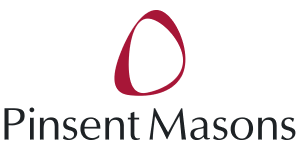 Austria deposited its instrument of ratification on the Protocol to the Agreement on a Unified Patent Court on provisional application (PAP-Protocol) on 18 January 2022. The PAP-Protocol has now entered into force. This means that the provisional application phase, in which the final steps for the preparation of the Unified Patent Court (UPC) will take place, can now begin.
Austria deposited its instrument of ratification on the Protocol to the Agreement on a Unified Patent Court on provisional application (PAP-Protocol) on 18 January 2022. The PAP-Protocol has now entered into force. This means that the provisional application phase, in which the final steps for the preparation of the Unified Patent Court (UPC) will take place, can now begin.
The UPC will provide a new, dedicated European judicial system for litigating the new unitary patent (UP). Existing European patents that are not specifically opted-out of the UPC’s jurisdiction will also be subject to the new court system.
Only EU member states can participate in the UPC system. While most of those states support the project, three – Spain, Croatia and Poland – have so far indicated that they will not participate in it. As the United Kingdom is no longer part of the EU, it will not be part of the UPC.
The provisional application phase is expected to take approximately eight to 10 months, during which the finalisation of the court’s Rules of Procedure and secondary legislation, IT infrastructure including the court’s filing system, financial budgets, and the hiring of staff, which importantly includes the appointment of technical and legal judges.
Once the UPC Preparatory Committee has confirmed that the infrastructure is in place, Germany will deposit its instrument of ratification of the UPC Agreement (UPCA). This will trigger a four month countdown until the UPCA’s entry into force and set the date for the start of the UPC’s operations. It is therefore expected that the UPC will open its doors towards the end of 2022 or early 2023.
Prior to the court opening, there will be a three month ‘sunrise period’ during which patentees can file opt-outs for existing European patents, European patent applications and supplementary protection certificates (SPCs), as well as indicate that they wish to for pending European patents to be designated as an UP.
With this news, patentees will need to review their European patent portfolios and patenting strategies, including prosecution, commercialisation and litigation strategies prior to the opening of the UPC to ensure that such strategies align with the needs of their business. Businesses should also review their commercial agreements to ensure that they take account of the UP and UPC where appropriate.
Written by Sarah Taylor, Senior Practice Development Lawyer, Pinsent Masons London











